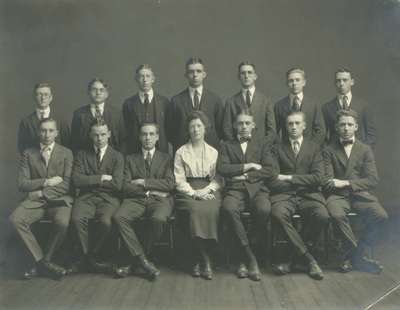University of Massachusetts Amherst. School of Public Health and Health Sciences Records
In response to an epidemic of scarlet fever at Massachusetts Agricultural College in 1912 and the death of four students, the Massachusetts Legislature finally appropriated funds to construct an infirmary. Staffed initially by a nurse, and later (1930) by a physician, the infirmary had grown sufficiently by the 1940s to require the creation of a separate department of Student Health. Formal instruction in public health began in 1939 and the first public health department, Bacteriology, was created one year later, followed by Nursing and other departments. In 1973, the School of Health Sciences was formed, comprised of the Division of Nursing, the Division of Public Health, and (after 1975), the Department of Communication Disorders. The School of Health Sciences split into the School of Public Health and the School of Nursing in 1989. In 1993, the School was renamed the School of Public Health and Health Sciences, which provides education for graduate and undergraduate students, as well as health professionals.
Record group consists of annual reports; department histories; accreditation reports; correspondence and memoranda; proposals; technical reports; faculty lists; course descriptions, course of study guides and syllabi; training handbooks and laboratory exercises; brochures and fliers; newsclippings, newsletters and articles; surveys; conference materials; and related materials.


 A number of student publications have been digitized and are indexed in
A number of student publications have been digitized and are indexed in 